2001-07-24 10:07
UK Club in ‘excellent financial shape’
Although the worldwide fall in equity markets took its toll on the UK P&I Club's (United Kingdom Mutual Steam Ship Assurance Association's) investment income, a significant drop in the level of claims meant the club's solvency position remained unchanged over the year ended 20th February 2001.
According to the Club's annual report and accounts for the period:
"This fall in assets was counter-balanced by a reduction in the provision for outstanding claims, mainly because of improvement in the claims in the 1999 policy year, and a better than expected 2000 policy year."
There had been significant reductions in 1999 in moderate to large collision and dock damage and oil pollution claims. For the 2000 policy year, claims did not appear to be quite down to the levels of 1999 but were consistent with an overall improvement in recent years.
This situation enabled the Club to cut the planned supplementary call for 1999 from 40 to 30 per cent - the seventh time in eight years it has been reduced.
The Club had around 100 million gross tons of merchant shipping on its books at 20th February 2001, thereby preserving its position as the world's largest marine mutual.
The Club's "excellent financial shape" was confirmed by the increased security rating from Standard and Poor's. The AA- rating endorsed the Club's "long standing place in the highest level of security achieved by any P&I club."
The Club's reserves - spread across contingency, catastrophe, reinsurance retention, US oil pollution additional premium and statutory accounts - totalled over US$590 million. When added to more than US$301 million allocated for the closed policy years from funds and estimated supplementary calls, and over US$191 million for the open policy years of 1998, 1999 and 2000, the total funds available were US$1,083 million.
Against this, estimated claims and forecast unreported claims were US$734 million. However, when discounted, the net present value of this liability was US$653 million.
This produced a free reserves margin of over US$348 million, well above the benchmark set by the Club's Board.
The 2000 policy year was the first for the new system of debiting premiums, with the mutual premium payable in four equal instalments, three during the policy year itself and the fourth not later than December 2001. The Board will decide whether the final instalment will attract any discount, depending on financial performance.
A general increase of 7.5 per cent in premium ratings had been imposed for the 2001 policy year.
The UK Club continued to contribute to the International Pool, which operates for claims excess of US$5 million, and to the Pool's excess of loss reinsurance arrangements from US$30 million up to US$2.03 billion. The Club has a further US$1.28 billion cover of its own against overspill claims.
The Club continues to have available the reinsurance arrangements with the Swiss Re which could operate to fill any gap in excess of the cover provided by the conventional Pooling and reinsurance arrangements and the Catastrophe reserve and its own overspill reinsurance. The Swiss Re reinsurance covers all outstanding claims in excess of a retention which is designed to maintain the UK Club's reserves within its target band.
Taking all the reinsurances and the catastrophe reserve together, the Club could potentially meet its share of an overspill claim (of even more than US$4 billion) without making an overspill call.
The Club's overall investment return for the 2000 policy year was -0.3 per cent, compared with 7.8 per cent for the previous year. The equity portfolio produced a loss of 14.7 per cent while the fixed income portfolio recorded a gain of 7.3 per cent. However, the six-year annualised return, including the year under review, was 7.3 per cent.
The significant fall in most of the world's equity indices, the first for some years, was a timely reminder of the relationship between risk and reward. It remained Board policy to maintain a significant holding in equities, bearing in mind the Club's free reserve position, and the need for a long term view on equity investment.
In October, the Club invested in the managers' private company. It provided a US$10.5 million loan to help Thomas Miller Holdings develop innovative products and services in new and existing businesses. The funds have helped Miller's to invest in ShipServ, an Internet-based ship supply procurement site; and in TRI-MEX International, who provide freight tracking and security services via satellite tracking management systems. The loan will be convertible in 2005 into a 10 per cent stake in Thomas Miller Holdings.
UK Club Chairman Aleco Kairis, elected in October 2000, felt that recent events had confirmed the relevance of mutuality in protecting and indemnifying the owners of ocean-going ships.
"The year has seen the threat of a concerted move on P&I insurance by commercial insurance companies recede. The decision of one major capital backer to withdraw from the commercial market for P&I has shown shipowners the value of being in control of their own destiny.
"These developments have further strengthened the UK Club and the mutual clubs in general. We foresee a period of steady consolidation in the future based on the core values of services and financial strength."
Mr Kairis felt the mutual system was particularly suitable for providing and enhancing service, which was foremost in consolidating the strength of the Club.
"Our managers now deliver the Club's service through a worldwide network of offices. We shall build on this as well as on the existing work of the Club in loss prevention information and advice, and the use of electronic communication".
Loss prevention
The Club has maintained its focus on the provision of timely loss prevention advice to Members. Vehicles included Loss Prevention Bulletins, sent to Members weekly by fax or email and provided on the Club's website; and the regular newsletter Loss Prevention News, incorporating a substantial supplement Container Matters. The videos Container Matters and Any Fool Can Stuff a Container were launched in March 2000 and have proved extremely successful.
The Club's crew risk management programme, one of its most successful loss prevention initiatives, continues to expand in terms of the number of Members and countries utilising the service for proper pre-employment medical checks on crew candidates. The Club is also engaged in streamlining and monitoring the post-repatriation treatment processes.
Ship inspections
During the 2000 policy year, the Club's ship inspectors visited 523 vessels, bringing the total for the 10 years the inspection scheme has been running to 5595. These inspections took place in India, Singapore, Taiwan, Japan, South Korea, the USA, the United Arab Emirates, North West Europe and, for the first time, Panama. At three per cent, the proportion of ships receiving adverse reports requiring them to be formally surveyed under the Club's Rule 5Q, was unchanged from 1999. A further 43 per cent of inspected ships were the subject of comment, mainly on service, maintenance and safety standards, while 53 per cent received a high rating with no comment.
Some 268 ships were subject to condition surveys in 2000. These surveys are required for ships over 10 years old at entry into the Club; those which have received adverse inspection reports; and those where serious defects have come to light following claims. About 45 per cent resulted in formal repair recommendations.
Member quality
Loss prevention and ship inspection contribute to the strategy whereby members in general can be confident that those with whom the cost of claims is shared will observe appropriate standards in the operation and maintenance of their ships, and in their dealings with the Club. Quality is also reflected in rules relating to surveys, statutory requirements and classification. Seven members with insufficient commitment to quality were not offered renewal.
eCommerce
The Club has continued to develop the Internet to provide information and publications quickly and economically, and to deliver data held on the Managers' computer systems to Members. The ClaimsTrac system, designed to provide Members with up-to-date data about their claims, was extended to provide underwriting information - loss records, fleet lists and terms. Its availability online has been particularly useful for renewal purposes and has been greatly welcomed by brokers. The Managers plan to develop this system further to provide brokers with a statement of account in respect of all Members entered through them.
Oil pollution
The Club supported an international approach to the liability and compensation regime for oil pollution damage. The managers are represented on the working group of the International Oil Pollution Compensation Fund, set up to review the workings of the CLC and Fund regime by October 2001. The IMO's Legal Committee has agreed to increase the limits of compensation under the 1992 CLC and Fund Conventions by about 50 per cent, using the 'tacit amendment' procedure.
Other Group initiatives in this field focused on the IMO's draft Convention on Civil Liability for Pollution Damage caused by Bunker Oil ('Bunkers Convention'). The Group sought unsuccessfully to clarify limitation rights, to oppose compulsory insurance certificates and to introduce responder immunity for those engaged in cleaning-up spills.
Other pollution matters considered included the introduction in Alaska of new state COFR requirements for non tank ships, coupled with prospective legislation to introduce contingency planning requirements; the successful outcome of the proceedings by Intertanko against the State of Washington, in respect of state requirements for tankers; and the signing of a Memorandum of Understanding between the International Group and the US National Oceanic and Atmospheric Administration to facilitate the input of technical expertise from the International Tanker Owners Pollution Federation in the handling of natural resource damage claims.
Other matters
Two rule changes reflected the increased use of electronic data. One minimised the risk of inadvertent alteration of the law of the insurance contract, given uncertainties that could arise with the location of Internet-based transactions. The other concerned evidence of electronic communication.
Supported by other members of the International Group, Signum Services investigated the increasing incidence of the smuggling of Chinese citizens into North America by means of containers and containerships. As a result, the Club issued detailed loss prevention guidance. This concentrated upon preventive measures and actions following the discovery of stowaways.
According to the Club's annual report and accounts for the period:
"This fall in assets was counter-balanced by a reduction in the provision for outstanding claims, mainly because of improvement in the claims in the 1999 policy year, and a better than expected 2000 policy year."
There had been significant reductions in 1999 in moderate to large collision and dock damage and oil pollution claims. For the 2000 policy year, claims did not appear to be quite down to the levels of 1999 but were consistent with an overall improvement in recent years.
This situation enabled the Club to cut the planned supplementary call for 1999 from 40 to 30 per cent - the seventh time in eight years it has been reduced.
The Club had around 100 million gross tons of merchant shipping on its books at 20th February 2001, thereby preserving its position as the world's largest marine mutual.
The Club's "excellent financial shape" was confirmed by the increased security rating from Standard and Poor's. The AA- rating endorsed the Club's "long standing place in the highest level of security achieved by any P&I club."
The Club's reserves - spread across contingency, catastrophe, reinsurance retention, US oil pollution additional premium and statutory accounts - totalled over US$590 million. When added to more than US$301 million allocated for the closed policy years from funds and estimated supplementary calls, and over US$191 million for the open policy years of 1998, 1999 and 2000, the total funds available were US$1,083 million.
Against this, estimated claims and forecast unreported claims were US$734 million. However, when discounted, the net present value of this liability was US$653 million.
This produced a free reserves margin of over US$348 million, well above the benchmark set by the Club's Board.
The 2000 policy year was the first for the new system of debiting premiums, with the mutual premium payable in four equal instalments, three during the policy year itself and the fourth not later than December 2001. The Board will decide whether the final instalment will attract any discount, depending on financial performance.
A general increase of 7.5 per cent in premium ratings had been imposed for the 2001 policy year.
The UK Club continued to contribute to the International Pool, which operates for claims excess of US$5 million, and to the Pool's excess of loss reinsurance arrangements from US$30 million up to US$2.03 billion. The Club has a further US$1.28 billion cover of its own against overspill claims.
The Club continues to have available the reinsurance arrangements with the Swiss Re which could operate to fill any gap in excess of the cover provided by the conventional Pooling and reinsurance arrangements and the Catastrophe reserve and its own overspill reinsurance. The Swiss Re reinsurance covers all outstanding claims in excess of a retention which is designed to maintain the UK Club's reserves within its target band.
Taking all the reinsurances and the catastrophe reserve together, the Club could potentially meet its share of an overspill claim (of even more than US$4 billion) without making an overspill call.
The Club's overall investment return for the 2000 policy year was -0.3 per cent, compared with 7.8 per cent for the previous year. The equity portfolio produced a loss of 14.7 per cent while the fixed income portfolio recorded a gain of 7.3 per cent. However, the six-year annualised return, including the year under review, was 7.3 per cent.
The significant fall in most of the world's equity indices, the first for some years, was a timely reminder of the relationship between risk and reward. It remained Board policy to maintain a significant holding in equities, bearing in mind the Club's free reserve position, and the need for a long term view on equity investment.
In October, the Club invested in the managers' private company. It provided a US$10.5 million loan to help Thomas Miller Holdings develop innovative products and services in new and existing businesses. The funds have helped Miller's to invest in ShipServ, an Internet-based ship supply procurement site; and in TRI-MEX International, who provide freight tracking and security services via satellite tracking management systems. The loan will be convertible in 2005 into a 10 per cent stake in Thomas Miller Holdings.
UK Club Chairman Aleco Kairis, elected in October 2000, felt that recent events had confirmed the relevance of mutuality in protecting and indemnifying the owners of ocean-going ships.
"The year has seen the threat of a concerted move on P&I insurance by commercial insurance companies recede. The decision of one major capital backer to withdraw from the commercial market for P&I has shown shipowners the value of being in control of their own destiny.
"These developments have further strengthened the UK Club and the mutual clubs in general. We foresee a period of steady consolidation in the future based on the core values of services and financial strength."
Mr Kairis felt the mutual system was particularly suitable for providing and enhancing service, which was foremost in consolidating the strength of the Club.
"Our managers now deliver the Club's service through a worldwide network of offices. We shall build on this as well as on the existing work of the Club in loss prevention information and advice, and the use of electronic communication".
Loss prevention
The Club has maintained its focus on the provision of timely loss prevention advice to Members. Vehicles included Loss Prevention Bulletins, sent to Members weekly by fax or email and provided on the Club's website; and the regular newsletter Loss Prevention News, incorporating a substantial supplement Container Matters. The videos Container Matters and Any Fool Can Stuff a Container were launched in March 2000 and have proved extremely successful.
The Club's crew risk management programme, one of its most successful loss prevention initiatives, continues to expand in terms of the number of Members and countries utilising the service for proper pre-employment medical checks on crew candidates. The Club is also engaged in streamlining and monitoring the post-repatriation treatment processes.
Ship inspections
During the 2000 policy year, the Club's ship inspectors visited 523 vessels, bringing the total for the 10 years the inspection scheme has been running to 5595. These inspections took place in India, Singapore, Taiwan, Japan, South Korea, the USA, the United Arab Emirates, North West Europe and, for the first time, Panama. At three per cent, the proportion of ships receiving adverse reports requiring them to be formally surveyed under the Club's Rule 5Q, was unchanged from 1999. A further 43 per cent of inspected ships were the subject of comment, mainly on service, maintenance and safety standards, while 53 per cent received a high rating with no comment.
Some 268 ships were subject to condition surveys in 2000. These surveys are required for ships over 10 years old at entry into the Club; those which have received adverse inspection reports; and those where serious defects have come to light following claims. About 45 per cent resulted in formal repair recommendations.
Member quality
Loss prevention and ship inspection contribute to the strategy whereby members in general can be confident that those with whom the cost of claims is shared will observe appropriate standards in the operation and maintenance of their ships, and in their dealings with the Club. Quality is also reflected in rules relating to surveys, statutory requirements and classification. Seven members with insufficient commitment to quality were not offered renewal.
eCommerce
The Club has continued to develop the Internet to provide information and publications quickly and economically, and to deliver data held on the Managers' computer systems to Members. The ClaimsTrac system, designed to provide Members with up-to-date data about their claims, was extended to provide underwriting information - loss records, fleet lists and terms. Its availability online has been particularly useful for renewal purposes and has been greatly welcomed by brokers. The Managers plan to develop this system further to provide brokers with a statement of account in respect of all Members entered through them.
Oil pollution
The Club supported an international approach to the liability and compensation regime for oil pollution damage. The managers are represented on the working group of the International Oil Pollution Compensation Fund, set up to review the workings of the CLC and Fund regime by October 2001. The IMO's Legal Committee has agreed to increase the limits of compensation under the 1992 CLC and Fund Conventions by about 50 per cent, using the 'tacit amendment' procedure.
Other Group initiatives in this field focused on the IMO's draft Convention on Civil Liability for Pollution Damage caused by Bunker Oil ('Bunkers Convention'). The Group sought unsuccessfully to clarify limitation rights, to oppose compulsory insurance certificates and to introduce responder immunity for those engaged in cleaning-up spills.
Other pollution matters considered included the introduction in Alaska of new state COFR requirements for non tank ships, coupled with prospective legislation to introduce contingency planning requirements; the successful outcome of the proceedings by Intertanko against the State of Washington, in respect of state requirements for tankers; and the signing of a Memorandum of Understanding between the International Group and the US National Oceanic and Atmospheric Administration to facilitate the input of technical expertise from the International Tanker Owners Pollution Federation in the handling of natural resource damage claims.
Other matters
Two rule changes reflected the increased use of electronic data. One minimised the risk of inadvertent alteration of the law of the insurance contract, given uncertainties that could arise with the location of Internet-based transactions. The other concerned evidence of electronic communication.
Supported by other members of the International Group, Signum Services investigated the increasing incidence of the smuggling of Chinese citizens into North America by means of containers and containerships. As a result, the Club issued detailed loss prevention guidance. This concentrated upon preventive measures and actions following the discovery of stowaways.
많이 본 기사
- 이스라엘 짐라인 놓고 유럽계 선사 인수경쟁 ‘후끈’부산항 시민단체, 현대LNG해운 해외매각 불승인 촉구벌크선시장, 연말 맞아 물동량 후퇴한진 “물류는 브랜드 경험을 완성하는 핵심”인천해수청, 백령도 용기포항 카페리선부두 완공‘중국 물동량 호조’ 3분기 항만 컨실적 성장세 유지‘선화주 상생 영상공모전’ 서강대 오션브릿지 대상 수상기고/ 2026 글로벌 공급망 전망과 한국 물류산업의 전략적 대응중국 JJ쉬핑, 中日-태국항로 내년 1월 신설AI로 여객선 운항여부 3일후까지 내다본다
- ‘한국조선해양 아버지’ 신동식 회장, 장보고대상 수상HD현대, 해운조선전문가들과 자율운항·사이버보안등 연구성과 공유삼성重, 해상 소형원자로 상용화 속도…미국선급 인증받아HJ중공업, 해군서 3125억 규모 신형 고속정 4척 수주디엠쉽핑, 인천해사高에 장학금 전달해양진흥공사, 인천해사高 예비 해기사에 장학금 수여인사/ 해양수산부부산초량왜관연구회, 대일 외교관 순국 영령 추모제 열어中 광저우항, 누계 해운철도복합운송량 100만TEU 돌파인천항만공사, 지역농산물 활용 취약계층 식생활 개선 도와
스케줄 많이 검색한 항구








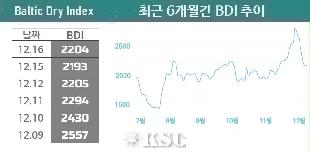
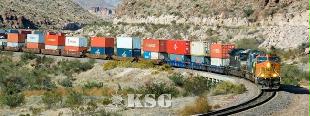
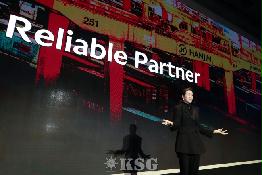

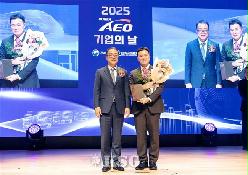
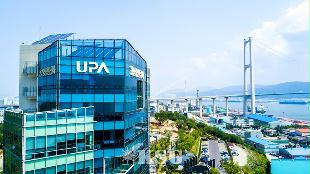
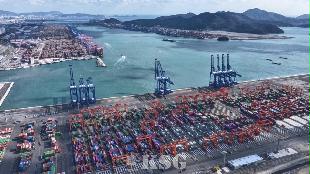

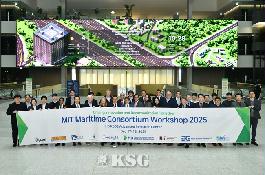
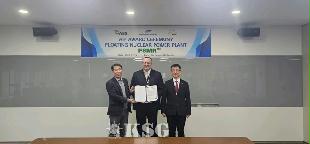
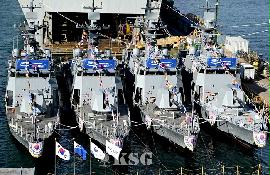
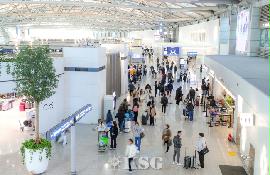
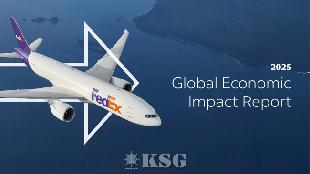

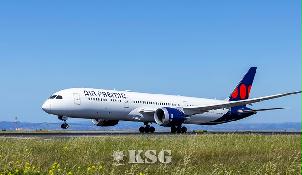
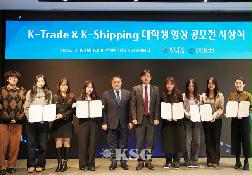

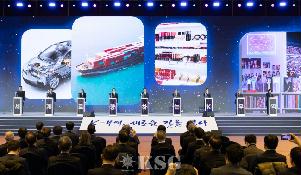

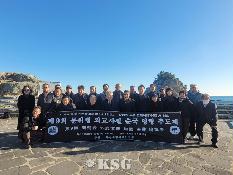

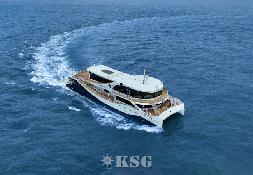
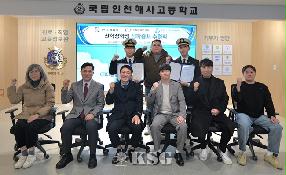
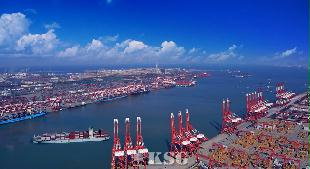
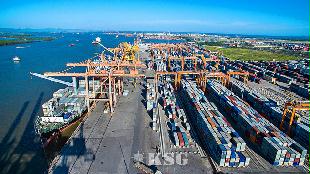
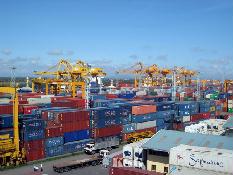







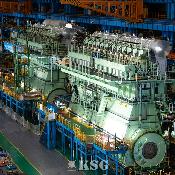
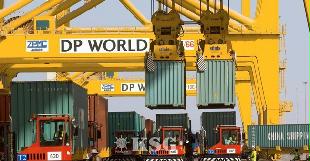
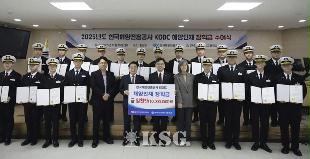





















0/250
확인